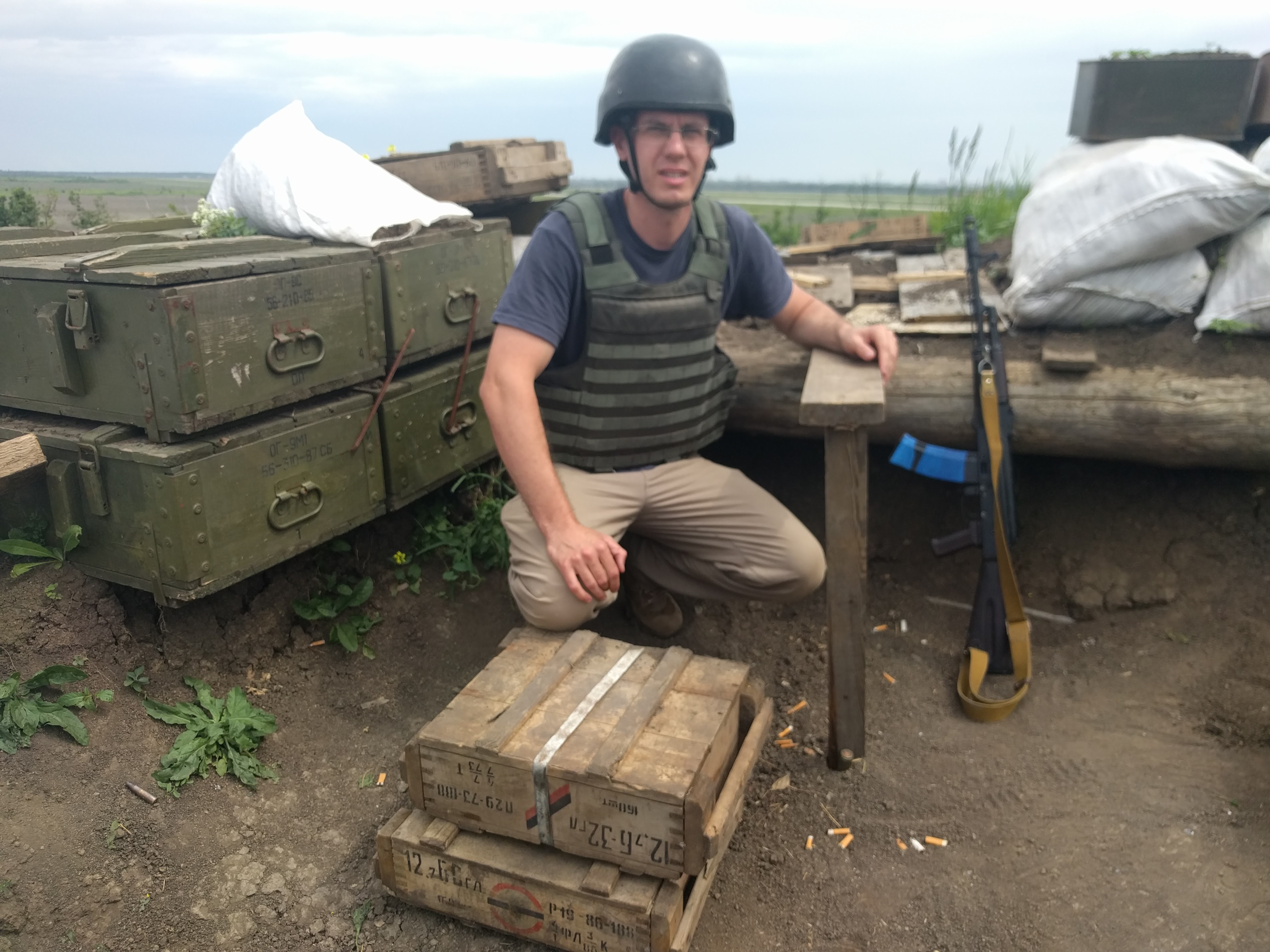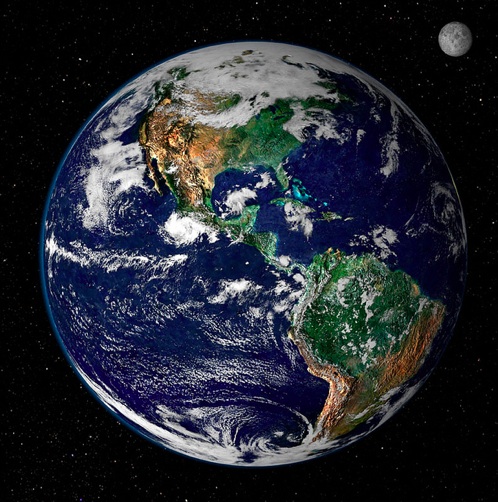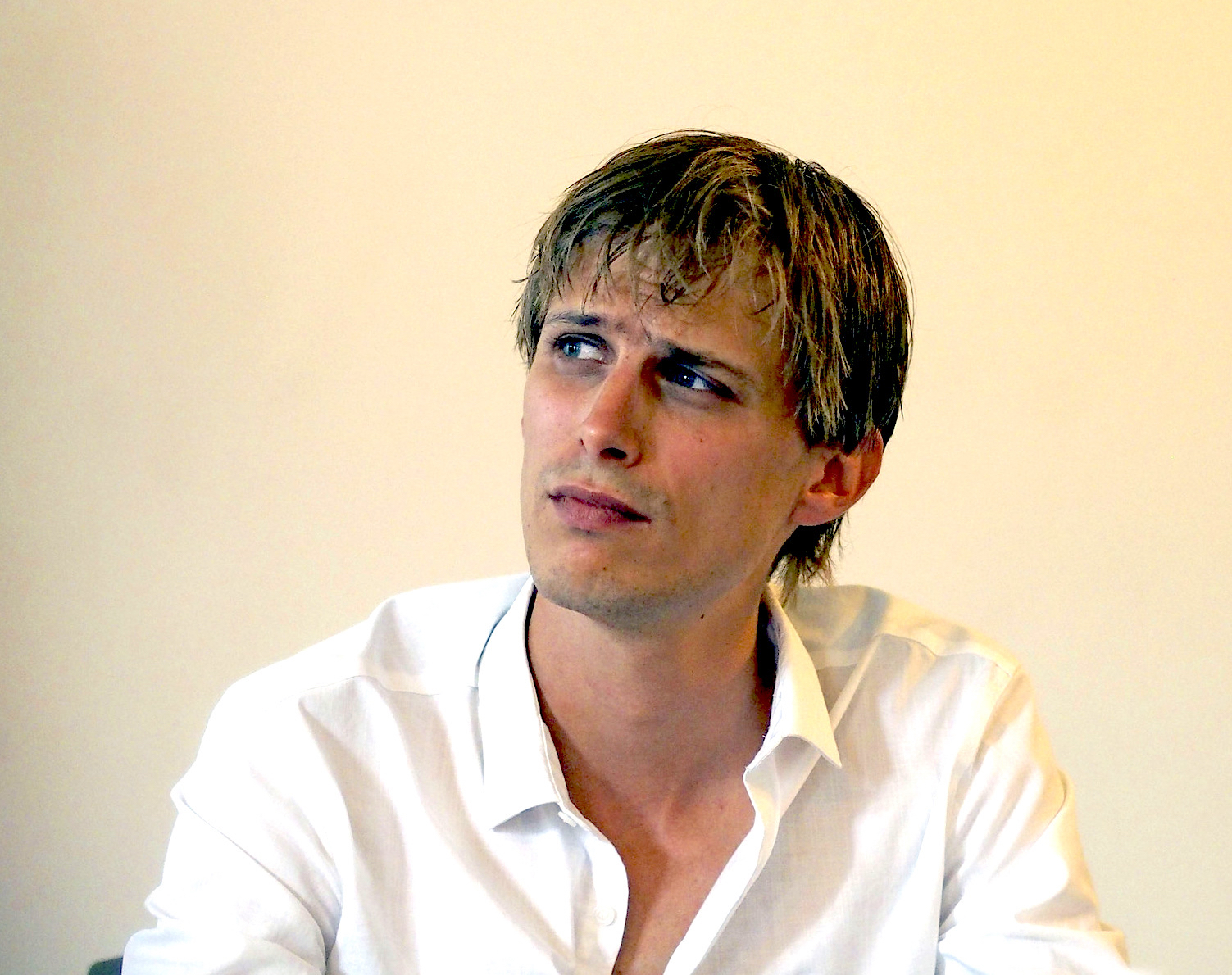Serhii Kuzan is a Ukrainian lawyer from Kharkiv who, following the Revolution of Dignity in 2014, became an advisor to the Secretary of Ukraine’s Council on National Security and Defense. Currently, he is also the coordinator of the Kharkiv division of the Ukrainian Volunteer Network “Free People” and one of the main coordinators of the Friends of Ukraine Defence Forces Fund, sponsored by the League of Ukrainian Canadians and League of Ukrainian Canadian Women. In the past 2 years, as the coordinator of this network, Serhii Kuzan and his team have delivered tons of humanitarian assistance to the army and volunteers in the Anti-Terrorist Operation Zone.
Can you please tell us more about the project and what kind of support you have provided to Ukrainian soldiers?
Free People is a network of volunteers who help Ukrainian soldiers in the Anti-Terrorist Operation Zone. Our support is two-tiered. On the one hand we provide support to Ukrainian Armed Forces fighting in eastern Ukraine against Russian backed rebels. On the other hand we provide humanitarian assistance to people affected by the war. Since 2014 our volunteers have transferred numerous GPS navigators, binoculars, night vision goggles, clothing, water and other supplies to Ukrainian soldiers and families living in the war-torn zone. Our network also provides support to demobilized soldiers and their families. We are extremely grateful to the Ukrainian community in Canada for their continuous help.
How well equipped is the Ukrainian Army today compared to 2014? Do they receive enough supplies from the Ministry of Defence and volunteer projects like the one you are involved in?
The level of procurement has improved significantly compared to the first year of war with Russian backed rebels. It basically did not exist. The soldiers had to use gear from 1940 and 1950. Today Ukrainian Armed Forces have a new improved uniform compared to the old Soviet uniform they had at the beginning of the conflict. Today Government procurement is sufficient and soldiers receive everything they need to fight a war. Volunteers played a crucial role in supplying Ukrainian personnel with sleeping bags, boots, communication devices, food, etc. The work of those volunteer networks has won us some time for government procurement to return to normal level. Ukrainian diaspora around the world played a crucial role in this by collecting money and sending it to those helping Ukrainian soldiers at the frontlines. Nowadays our role is to cover the specific needs of Armed Forces units, be it by supplying water purification systems or providing legal advice to the veterans.
The ceasefire regime is clearly not working. Every day Ukrainians report about dead and wounded soldiers. What is your assessment of this? Why are there so many casualties despite the announced ceasefire?
The war that Ukraine is currently involved in has taken various forms since 2014. It did not stop for a day during this period. It is important to clearly understand that Russia has started this war and continues to fight it on the territory of Ukraine. The Kremlin is using terrorist tactics completely disregarding every agreement and accord on conducting warfare. Ukrainians are fighting state-sponsored terrorism. While we are trying to negotiate a ceasefire regime, we understand that the Russians will always break it, as they are doing right now. The diplomats in Minsk are doing their job by trying to stabilize the situation, but the rebels break their promises every day. The number of Ukrainian casualties has dropped, but every day the Ministry of Defence of Ukraine reports on killed and wounded soldiers. We are losing our men and women in uniform every single day. Kremlin’s goal is to create tension within Ukraine and use the fifth column to destabilize the situation. Look at Syria for example. The Russians are constantly breaking the existing ceasefire agreements with the US. While the States are trying to help moderate groups, the Russians are targeting their camps, thus helping Assad to stay in power. The Kremlin cannot be trusted.
At the NATO Summit in Warsaw, the war in Ukraine was one of the most discussed topics. Are you satisfied with the results of the Summit? Did Ukraine receive the support it was hoping for?
Ukraine’s accession to NATO is currently impossible due to an ongoing conflict in the eastern part of the country and annexed territory in the south. I was very pleased to see that concrete steps and measures have been included in the final document of the summit. It shows that NATO understands the threat that Russia is posing to the Euro-Atlantic community. I hope that deeper cooperation with NATO will allow Ukraine to expedite the transformation of Ukrainian Armed Forces and modernize its military-industrial complex. Ukraine is very grateful for all the support it has received up to date.
Canada agreed to send 450 Canadian Armed Forces personnel to Latvia in response to Russia’s aggressive behavior in Ukraine. Do you view it as a positive sign? What else can Canada do to help Ukrainian soldiers in their fight against Russian mercenaries?
It sends a very strong political message when a G-7 country commits to sending its troops abroad to contain Russian expansionism. While we welcome the support that Canada is providing to us, we must be realistic. We cannot compare the thousands of Russian troops amassed outside of the Baltic region or 40,000 Russian personnel in the Donbas region to 450 Canadian soldiers stationed in Latvia. Numbers speak for themselves in this case. Latvia’s capabilities are very limited compared to Russian military-industrial complex. The question is, can Canada do more to support Ukraine? The answer is – absolutely. Prolonging Operation UNIFIER beyond March 2017 is of crucial importance. In addition, the Ukrainian Armed Forces would welcome the decision to continue providing satellite imagery, which has been terminated in May of this year. Another important thing to remember is that Russia does not see the West as a reliable partner, therefore every attempt to normalize relations will eventually fail. The only diplomatic tools that Russia knows are dominance and manipulation. If you cannot be dominated by them, then they will try to manipulate you.
Let’s talk about the new type of contemporary domain of warfare, information warfare. In your opinion, how well informed are Canadians about what is going on in Ukraine? Do Western media report enough on the war in Ukraine and is the information objective?
The information component is what makes this hybrid warfare unique. The military community in the West is currently in the process of adapting to the new type of warfare. In my view, the amount of information about the war in Ukraine in Western media is not adequate. Meanwhile, the Russians have learned how to use Western standards in journalism to their advantage. For instance, they are using the principle of freedom of speech to buy channels and air time to disseminate their lies. A good example of a Russian propaganda channels is Russia Today. While it looks professional and appealing, the guests that appear on the shows never criticize Putin and his regime. To the contrary, they defend Putin’s military adventurism and Russian expansion. They usually call their propaganda an “alternative view”. As a general rule the Kremlin is using dirty money to sponsor their lies abroad. Their goal is to shape public opinion and attract loyal supporters. They like to present themselves as the moral beacons of the world that defends traditional values. In Canada RT should be viewed as a foreign enemy unit designed to skew public opinion and promote confusion and dissatisfaction with the status quo.
The second mechanism that the Russian propaganda has learned to utilize successfully is the journalistic principle of balancing opposing views. Russians are spending huge amounts of money to promote their view of the war in Ukraine. Therefore I urge everyone to question everything they read, watch or hear regarding the situation in Ukraine. The important thing to remember is that there is no grey zone when it comes to the crises in Ukraine. The Kremlin has started this war and it continues to sponsor terrorist and send regular troops to Ukraine’s eastern regions. Our powerful tool is the 20 million strong Ukrainian diaspora, which acts as a bridge between Ukraine and the rest of the world.
Recent polls conducted in Ukraine suggest that 78% of Ukrainians support joining NATO. In your view is Ukraine better off joining NATO and why is it important for European security?
In current circumstances we cannot accept the pragmatic multi-vector foreign policy approach as a valid tool. Ukraine is a victim of Russian aggression and therefore we only have two options. One is to give up and lose our sovereignty, and the second one is to fight until we get back what belongs to us. During this period of time we will need our allies to stand by our side. There is no alternative for Ukraine but to eventually become a NATO member. Ukraine’s top priority is to reform its Armed Forces and integrate into NATO’s collective defense structure. The experience of fighting hybrid warfare against Russia that Ukraine has gained in the last 2 years is very useful for NATO in terms of moving forward and adapting to the new realities. NATO and the Euro-Atlantic community cannot stand aside while Ukraine is fighting for its sovereignty and territorial integrity. A NATO member could be the next victim of Vladimir Putin and his mobsters. Terrorism has no borders, regardless if we are talking about ISIS or Russian-state sponsored terrorism.
Thank you to Anton Sestritsyn for completing this interview. Anton is currently working as an Executive Director of the International Council in Support of Ukraine, as well as serves as a National Coordinator of the League of Ukrainian Canadians. Former Executive Assistant to a Member of Parliament, Anton completed a Bachelor of Public Affairs and Policy Management (Honours) with Human Rights specialization at Carleton University. Anton also attended a summer semester at Queen’s University in the UK. He is passionate about international affairs, governance, and law. Anton’s interests include European history, history of colonization, genocide studies, and Eastern European politics. Anton is a strong advocate of Ukraine’s Euro-Atlantic future. His articles in one of the leading Ukrainian newspapers “The Day” concentrate on Canada-Ukraine relations. Anton also publishes his articles in the “Ukrainian Echo” newspaper, published weekly in Toronto. Anton is fluent in English, Ukrainian, and Russian. He also has a working knowledge of French and Turkish languages.
Disclaimer: Any views or opinions expressed in articles are solely those of the authors and do not necessarily represent the views of the NATO Association of Canada.



